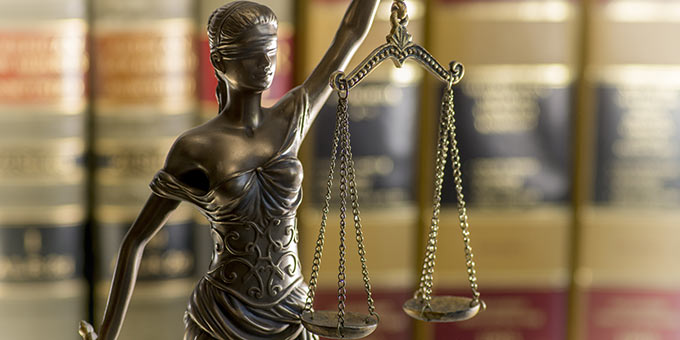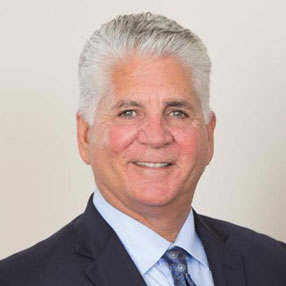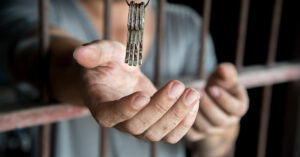The Best Defense
– by Daniel J Fernandez, Criminal Defense Attorney Fernandez & LLC
- General Statement
Please be advised that the information below is stated in general terms without regard to the specifics of your case. This information is being provided to you to give you a general overview of the criminal justice system. This information also helps you understand the various stages of proceedings you may encounter.
- The beginning of any criminal case.
By the time you read this one of the following will have occurred:
- You will have had a uniform traffic citation issued to you
- A summons to appear or
- Will have been physically arrested.
These generally are the ways that criminal and traffic matters are initiated in the State of Florida.
III. Bail or Bond
Generally when one is arrested and taken to jail and booked, they are released in one of three ways:
- Release on one’s recognizance (ROR) is utilized by jail administration and the courts for pre-trial release, and generally means that you give your personal guarantee to appear for all future court proceedings in your case.
- Pre-Trial Release (PTR) is a form of release on your own recognizance that requiring any mandatory obligation but does not require calling in to the program on a regular basis and may have some travel restrictions.
- Bond: If you have been required to post a bond that can be accomplished in two ways.
- You have the option of positing your entire bond in cash, which will be returned to you at the end of the case if you appear for all scheduled court hearings.
- The other alternative is to pay a bondsman and bond premium usually ten percent in state cases and fifteen percent in federal cases and the bondsman will post a bond with the court, assuring the payment of the total bond should you fail to appear for any scheduled court appearances.
Unless otherwise directed by a court order through a requirement of the PTR or ROR programs, or your bail bond contract, your ability to travel about and to go to your daily business is restricted while you are on bond. This is a manifestation of our long-held principle that all people charged with crimes or traffic infractions are presumed innocent until proven guilty. The only requirement of a bond and that the only purposed of a bond in general is to require your appearance at all scheduled court appearance.
Should a persona fail to appear at a scheduled court hearing when their presence is necessary, the court often times will revoke a bond and issue an arrest warrant for that individual. Our office will be sending you written confirmation of every court date you are required to attend.
- First Appearance
The first appearance is a hearing before a judge, generally within twenty four hours of the time of arrest, while still in custody. At this hearing charges are read to the individual, he or she is informed of their constitutional right to a lawyer and generally are given an opportunity to make a telephone call. Oftentimes, people arrested for crimes will not receive first appearance hearing because they will have been released from jail or bonded out prior to the next scheduled first appearance hearing.
- Arraignment
After an individual is arrested and released from jail or ROR or on bond, they are notified of their arraignment date in various ways. Misdemeanor, Traffic cases may receive their arraignment date from jail authorities upon their release. On criminal Traffic infraction tickets there may also be a date indicated upon the ticket which is the court appearance date and this will be an arraignment. The ticket may also require you to set hearing within a certain amount of days. Felony defendants who are on pre-trial release are generally advised of their arraignment date by mail with copies to their attorney.
The purpose of an arraignment is to formally have the judge read to you the charges and request you how you would like to plead. In the State of Florida, there are three possible pleas at the time of arraignment these pleas are 1) Not Guilty 2) No Contest 3) Guilty. Generally if an individual at arraignment pleads no contest or guilty at the same time of arraignment the judge will proceed to sentence the individual at arraignment and the case will precede no further, i.e. there will be no trial, etc. Oftentimes sentencing at arraignment may include prison time, jail time, probation, community control, fines, community service, attendance at alcohol or drug rehabilitation courses and other appropriate sanctions.
If an individual pleads not guilty at arraignment, the matter will be set for a Disposition or Pre-Trial or trail at a future date. At any time after arraignment one can usually change their not guilty plea to guilty or no contest if they desire but one usually cannot change a guilty plea once accepted, to not guilty.
- Client Appearance at Arraignment
If an individual retains private counsel prior to the time of arraignment, it is oftentimes possible for the attorney to make an appearance in this matter for the client and thereby save the client the necessity of appearing in court for their scheduled arraignment. It is our normal procedure to enter a written plea of not guilty of behalf of all clients at arraignment. We do not normally allow any other pleas until a thorough investigation has been completed by our office.
VII Notice of Appearance, Request for Discovery
When you retain Daniel Fernandez, Attorney at Law, to represent you, our firm immediately files our notice of appearance, informing the court, the state attorney, and any other interested parties that we represent you in this matter and for them to direct all future correspondence with regard to this matter to my attention.
Our firm also files a written waiver of arraignment, if appropriate, and enters a plea of not guilty on your behalf. In order to secure your right to a jury trial, our firm requests a hearing date at the earliest possible time so that this right is not waived. This does not necessarily mean that your case will go to trial, but our firm must ask for this at this point if we plead not guilty. We can arrange plea at any time.
Additionally, our firm requests discovery materials from the state attorney as early as possible This request is a hand written demand for them to produce to us all tangible evidence and witness names that they are aware of in the investigation of your case.
VIII Discovery Process
Upon our demand for discovery, the state attorney is generally obligated to respond to our demand within fifteen days. As a practical matter, it often takes longer than fifteen days for the state attorney to respond to our discovery request.
Once discovery is received, I immediately evaluate the enclosed materials and from the witness list schedule the depositions of the people the state has listed as witnesses in your case.
- Depositions
Depositions are the taking of a sworn statement, under oath, of the witnesses in your case.
In criminal matters, the state will not be allowed to take your deposition as you have the right to remain silent throughout the entire proceeding. However, any witnesses in that we may choose to list on your behalf may be deposed by the state attorney.
Generally, your attendance at depositions is not allowed. You will be informed by mail of the date and time of the scheduled deposition and unless otherwise notified, do not need to make arrangements to go.
- Negotiations
From the moment that our firm becomes involved in your case our firm will thoroughly investigate and prepare your case for trial. Towards the end of the pre-trial period we may attempt to negotiate with the prosecution or a solution short of going to trial. If has been our experience as both prosecutors and defense attorneys that negotiations are successful if you are negotiating from a position of strength Normally this does not occur until our investigation efforts have substantially weakened from the prosecutors case. We will convey any plea negotiation offers to you immediately and discuss with you our recommendation.
XI Notice for Pre-Trial Conference and Trial (Infraction Hearing, Non-Jury Trial and Jury Trials)
Every case is at one point set for a non-jury trial or jury trial. Some misdemeanor criminal offenses are only triable to a judge as the trier of fact. The state will be presented by a representative of the State Attorney’s Office (Prosecutor).
Most cases are triable by a jury. The judge generally rules on questions of law only and the jury decides the facts. A representative of the State Attorney Office represents the state (Prosecution) usually a notice for trial is sent several weeks before the scheduled trial period. Just prior to the trial period, there is usually scheduled a pre-trial conference. A pre-trial conference is used by the judge to determine if discovery has been completed. If a case is ready to go to trial, if it should be continued or if there will be a change of plea, as represented to the judge by the lawyer for each defendant.
Most judges require your presence at the pre-trial conference. In the event your case is set to go to trial, it will generally be set on a particular trial week. Your case could actually begin anytime during that week depending on how the other cases before the judge resolve themselves.
Should it become necessary, your matter may proceed to trial. In that regard, substantial pre-trial preparation will be required to the time of trial, including the review of testimony and other preparation.
However, a significant percentage of cases do not actually proceed to jury trial. They are resolved without the necessity of trial through negotiations.
XII Return of Bond Money
If you have posted a cash bond and have faithfully attended all court appearances your cash bond will be ordered returned to you at the conclusion of your case. Generally, the sheriff will require the presentation of the bond receipt to recover the cash bond. Generally your cash bond refund will be sent to you from the sheriff’s office within a few weeks. However, should you desire to get the cash bond back sooner you should call the Hillsborough County Sheriff’s Office (813) 247-8000 and inquire of them as to the exact procedure they would like for you to follow in securing a return of the cash bond in order to avoid any inconvenience to you.
XIII Discussing your case
Do not; under any circumstances discuss your case with anyone except your lawyer. Your discussions with us are protected by the attorney/client privilege, if you discuss your case with anyone else, with limited exceptions what you tell them may later be used against you. If any law enforcement officer, insurance adjuster, investigator or anyone approaches you to talk about your case tell them that your attorney has instructed you to not discuss your case with anyone and ask them to contact your lawyer for further information. Do not talk to the police under any circumstances without contacting your lawyer first. You have the right to remain silent at all times even in response to police questioning.
XIV Attorney/Client Privilege
Any private communications we have are protected by the attorney/client privilege which means that we will not and cannot be forced to discuss our communication. Anything you tell me will be held in strict confidence unless and until you authorize disclosure of that information. Please be advised that if you would like us to discuss your case with any third party (i.e. family, and friends) you must sign an authorization with our office to allow us to communicate with them about your case.
If you have been arrested or otherwise accused of a crime call defense attorney Daniel J. Fernandez at the law firm of Fernandez & , LLC for a free consultation (813) 229-5353.
Please refer to our reviews on avvo.com & google.com






